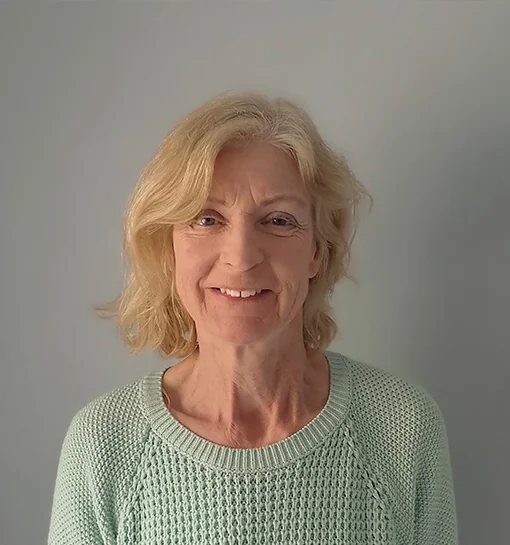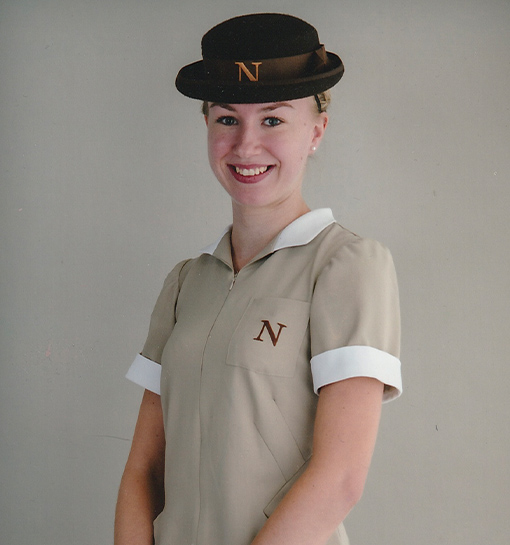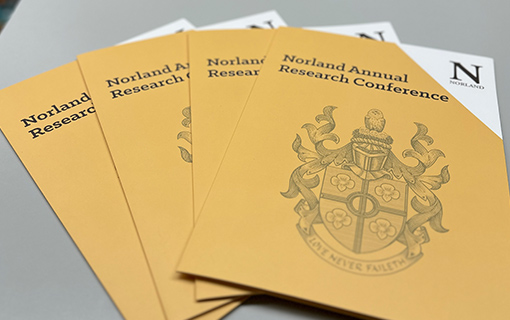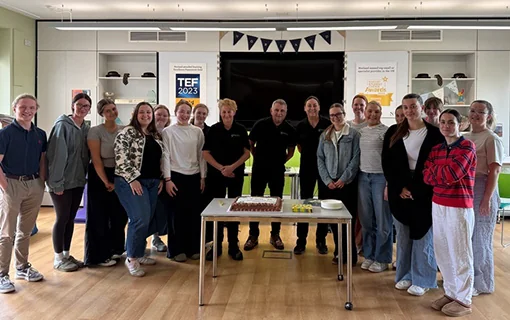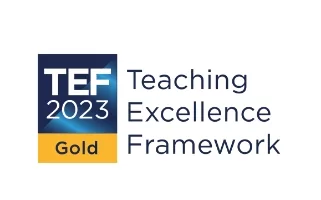Using my childhood experiences to create a sense of adventure with my charges
4 May 2021

Norland students, Newly Qualified Nannies (NQNs) and Norlanders are always looking for ways to improve and become better early years professionals.
This is done in many ways, including through the extensive continuous professional development (CPD) programme available for Norlanders via the Norland Agency and reflective practice. Third-year student Lois (Set 42) discusses the importance of reflective practice and how she plans to use experiences from her childhood to be the best possible nanny she can be.
Please introduce yourself.
My name is Lois and I am a third-year student in Set 42. You might have recently seen me talking all things diploma at the second Norland Unwrapped session. Before I came to Norland, I completed a CACHE Level 3 in Early Years Education. I selected this course because I knew I wanted to study at Norland and had a passion for working with children. While studying for my CACHE qualification, I completed over 1,000 hours of early years experience over two years, including a variety of nurseries and schools, and regular babysitting and working weekly at an after-school club to promote children’s mental health. This incredible experience meant I was well prepared for my first year at Norland. At the time of writing this blog, I am in my third year of training and approaching my Newly Qualified Nanny year!
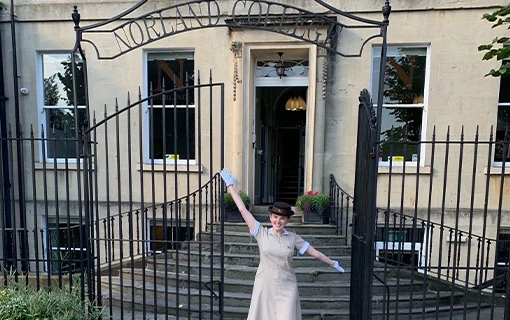
What childhood experiences do you draw on for your training?
I was recently asked this by a lecturer, which inspired me to write this blog. When I was a child, my parents always made life a great adventure. Even routine activities, such as a weekly shopping trip or going to the local tip, were made exciting. Viewing life as an adventure in my childhood has followed me into adulthood. I feel it truly enlightened my life experience and allowed me to have a positive attitude in the face of adversity. As a child, every moment felt magical, which I believe is the way childhood should be. I hope to bring this magic and sense of adventure to my charges when I become a qualified Norland Nanny.
How do you think your childhood experiences will contribute to your career as an early years professional?
My childhood experiences will always inspire me to ignite the spark in children, to find the adventures and look for the positives. Whether that’s just in everyday life or during times of immense stress and pressure. Even when I feel overwhelmed, I draw on my childhood experiences and the strength of my parents when times were difficult for them. Reflecting on my childhood reminds me that I can do anything, chase every dream and follow every star. I would love to take this into my career and spread this sense of wonder among the children I care for.
My childhood experiences will also remind me to be sensitive to children’s feelings. Something that seems trivial to an adult might be really important to a child. When I was young, my voice was always heard. Whether that was choosing how to wear my hair for school or what I had for breakfast, my opinion was often sought. This was always within reason but my parents’ trust in me allowed me to trust them, feel empowered and confide in them knowing that I would never be judged. This level of openness and honesty in my family helped me to always talk to my parents about anything and everything. They always made the time to listen. This will always encourage me to ‘check-in’ with children, remain impartial and try my best to empathise with their point of view. I will endeavour to listen to children and always make time for them, ensuring they know that they can talk to me about anything they need to. I know that this element of my childhood was instrumental in allowing me to become the type of person and nanny that I am today.
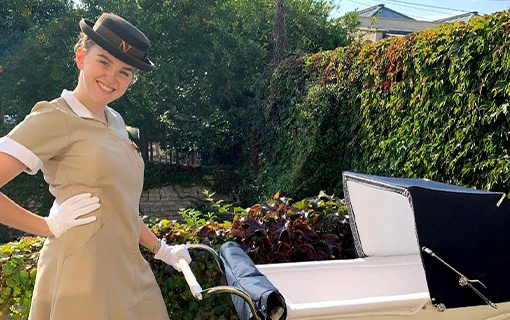
Life isn’t always rosy and we all feel sad or stressed at times, how can we turn difficult times into life-enhancing experiences for children and ourselves?
For me, it’s about perspective. When I was young, my mother became seriously ill. My dad was able to help me and my sister look for the positives and see the adventures, even when we were facing an uncertain and difficult time as a family. He was always there to collect me from primary school and take us to the hospital to see our mum. Instead of making this a sad event, he would let us choose the music in the car and we’d sing and dance and get an ice cream on the way. We radiated happiness and my mum could see this too. It must have been very difficult for my dad, but little things like this meant that I had the perspective and positivity to endure something which could have had the opposite effect on my happiness and my childhood. As a result, when I reflect on this time, I see quality time with my family and that there was always a light at the end of the tunnel. I am grateful that my mum made a miraculous full recovery and, beyond this troubling time, life became rosy once again. My advice to anyone going through a troubling time is to look for the good, try to find those silver linings even when they don’t present themselves immediately. Something else we found useful was being able to talk about my mum’s illness. The subject was never taboo and never has been since. This helped us to manage our big feelings, even on the tricky days where silver linings were few and far between. We were always given age-appropriate honest answers to our questions, which also helped us to trust and confide in our parents when something was wrong.
What training are you given to help with talking to children about difficult topics, such as COVID, or supporting their development and resiliency when they may be feeling overwhelmed?
We have learned a lot about positive communication with children and techniques such as emotion coaching to support children through big or difficult feelings. For those who haven’t heard of emotion coaching, it is definitely worth reading about as it’s such an important tool that I use to aid my practice. John Gottman is the theorist that devised the approach, which includes a five-step model to follow when coaching a child through an emotional outburst. It’s something I use regularly as a teaching opportunity, showing the child I understand and validate their feelings and labelling their emotions. It helps me to provide support for a child when they are experiencing strong emotions and how to set limits but still problem solve to find the best outcome for all.
For example, if a child hits out after I have told them they can’t do something, I might say “I can see you might be feeling a bit angry about not doing that at the moment. It is okay to feel that way, but it is not okay to hit. You can hit this pillow if you feel angry”. Following this, I would continue to reassure the child during the outburst: “I am here when you are ready to talk about it, let me know if you need a chat or a cuddle”. After the consistent reassurance and when the child has calmed down, then we can work together to come to a solution, for example saying “I could see you were quite angry about this. Remember to try and use your words if you can”. I usually reinforce that all emotions are welcome and remind the child which part of their behaviour is not acceptable. After that, we solve the problem together, by saying something like “we can’t do this at the moment, but we can do it at the weekend. In the meantime your choices are option a and option b. Which would you like to do?”. This shows the child that I am listening and that I want to help. It isn’t always a magic quick fix, but overtime it certainly lessens those tricky times when a child feels overcome by their emotions.
We have also had lectures on how to support children through various circumstances including bereavement, illness, divorce and separation. The common themes are to be honest but age-appropriate with children, allowing questions to be asked and feelings to be shared. Involving the children in working through any difficulties or instances where they feel overwhelmed can be instrumental in encouraging children to problem solve and manage their emotions when they are feeling this way. This has helped me to develop as an individual by encouraging me to welcome all emotions, both personally and when working with children, and ensuring that boundaries are also in place. It has also encouraged me to ask the child for their opinion and consider this when problem solving, much like experiences in my own childhood. I plan to put this approach into practice using emotion coaching techniques and by considering the factors discussed here. My lectures have inspired me to focus my dissertation on emotion coaching so that so that I can learn more about the approach and feel more confident about putting it into practice.
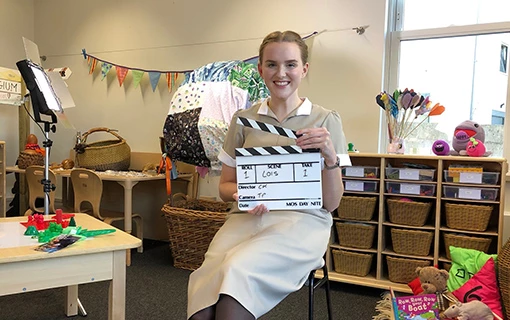
Can you explain what reflective practice is and what does it mean when you’re caring for children? How are you taught this at Norland?
Reflective practice is looking back on previous experiences and evaluating them so that you can develop as an early years professional. You take your past experiences and learn from them, thinking about what happened, what went well and what could be changed for a more successful outcome. Practising this skill is essential to being able to grow and improve; it helps you to champion your strengths and improve your weaknesses. Reflective practice will enable me to be the best nanny I can be by providing a framework to assess my own capabilities and skills. It is particularly helpful in supporting me to help a child. For example, highlighting anything I have tried when working with a child that was very successful and equally something that has not been as successful. Recognising why ensures that any mistakes are learned from and not repeated over and over. It doesn’t mean that what I did was wrong, it just helps me to identify the most appropriate action for the circumstance so that I can do it differently next time. Equally, it shows me what has worked for the better and therefore I can continue to keep this consistent.
We have degree modules at Norland that teach us various forms of reflection and how to continue our professional development to ensure that as reflective practitioners we are always striving to improve. This year we have completed a whole module on reflective practice that has complemented previous modules on the topic, such as professional practice. These modules have enhanced my understanding so that I can become a reflective practitioner and reflect as far back as my own childhood to ensure I provide children with the very best of care.
Part of what makes Norland so special is that it is a nurturing community and students learn first-hand from staff and peers the art of providing a nurturing environment, what nurturing experiences have you had at Norland that you’ll apply as a nanny?
Studying at Norland, I know that there is always someone to listen to me while I am away from home. Whether it’s my tutor, a lecturer, my placement officer or my peers, I know I can always get an unbiased opinion, advice and support if I need it. This has nurtured me during me training as it has allowed me to know that all questions are welcome, and that I will never be judged by those around me at Norland for things I say or do. This has allowed me to grow as a nanny and never be fearful of making mistakes, knowing I can learn from them. Norland has taught me that mistakes are opportunities to grow and develop and you should never be afraid or embarrassed to seek help and advice if you need it. As a nanny I hope to provide the same experience for my charges; an understanding and nurturing environment where they can be their authentic selves.
Browse our blog and latest news
